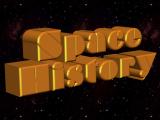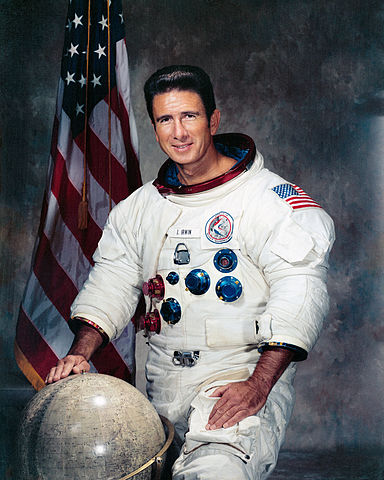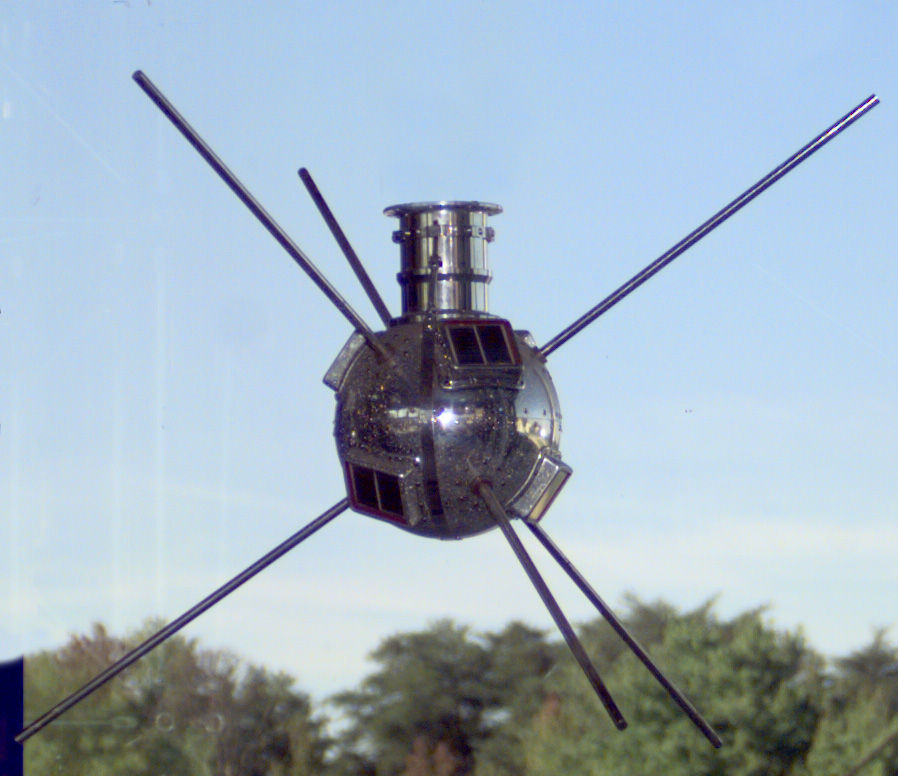
Space History for March 17
If you are not already a subscriber, you are welcome to enter your email address here to sign up to receive the Space History newsletter on a daily basis. Under no circumstances will we release your legitimate email address entered here to outside persons or organizations, and it will only be used for mailing the specific information you have requested.
| Enter your email address here: |
Unsubscribe instructions are included in every newsletter issue in case you decide you no longer wish to receive it.
Note: We record the IP address from which subscriptions are entered to help prevent SPAM abuses.
Race To Space
Someone will win the prize...
... but at what cost?
Visit RaceToSpaceProject.com
to find out more!
1764
Died, George Parker, English astronomer
ref: en.wikipedia.org
1782
Died, Daniel Bernoulli, Swiss mathematician (fluid equation)
Daniel Bernoulli (8 February 1700 - 17 March 1782) was a Dutch-born mathematician who spent much of his life in Basel, Switzerland. He worked with Leonhard Euler on the equations bearing their names. Bernoulli's principle is of critical use in aerodynamics. It is applicable to steady, inviscid, incompressible flow, along a streamline.
ref: mathshistory.st-andrews.ac.uk
1846
Died, Friedrich W. Bessel, German astronomer (measured distance to 61 Cygni), mathematician (systematized Bessel functions discovered by Daniel Bernoulli)
ref: mathshistory.st-andrews.ac.uk
1852
A. De Gasparis discovered asteroid #16 Psyche.
1853
Died, Christian Doppler, Austrian mathematician and physicist (Doppler effect)
Christian Andreas Doppler (29 November 1803 - 17 March 1853) was an Austrian mathematician, most famous for deducing the phenomenon known as the Doppler effect which causes the frequency of a wave to apparently change as its source moves toward or away from you.
ref: en.wikipedia.org
1893
A. Charlois discovered asteroid #363 Padua.
1898
The first practical submarine, the Holland VI, first submerged while under way in New York City, for 1 hour 40 minutes.
ref: web.archive.org
1899
Saturn's moon Phoebe, the first satellite discovered photographically, was discovered by William Henry Pickering from photographic plates taken starting on 16 August 1898 at the Boyden Observatory near Arequipa, Peru, by DeLisle Stewart.
ref: en.wikipedia.org
1930
Born, James Benson Irwin (at Pittsburgh, Pennsylvania, USA), Colonel USAF, NASA astronaut (Apollo 15; nearly 12d 7.25h in spaceflight), eighth person to walk on the Moon (deceased)

Astronaut James Irwin, NASA photo (7 October 1971)
Source: Wikipedia (jsc.nasa.gov unavailable March 2019)
ref: en.wikipedia.org
1931
A. Schwassmann discovered asteroid #1192 Prisma.
1936
Born, Thomas K. "Ken" Mattingly II (at Chicago, Illinois, USA), Rear Admiral USN, astronaut (Apollo 16, STS 4, STS 51C; over 21d 4.5h total time in spaceflight)

Astronaut Ken Mattingly, NASA photo (1971)
Source: Wikipedia (jsc.nasa.gov unavailable March 2019)
ref: www.nasa.gov
1939
Y. Vaisala discovered asteroid #1757 Porvoo.
1950
University of California, Berkeley researchers Stanely Thompson, Kenneth Street, Jr., Albert Ghiorso and Glenn T. Seaborg announced the creation of element 98, the sixth transuranium element to be discovered, which they named "Californium".
ref: en.wikipedia.org
1956
Died, Irene Joliot-Curie, French physicist (neutrons, nuclear fission), Nobel 1935 (nuclear chemistry) with Frederic Joliot "in recognition of their synthesis of new radioactive elements"
ref: www.nobelprize.org
1958 12:15:41 GMT
The US Navy launched Vanguard 1 into Earth orbit, the first satellite to use solar-cell power.

Vanguard 1 satellite, NASA photo
Source: NSSDCA Master Catalog
Vanguard 1, launched 17 March 1958, was a small Earth orbiting satellite designed to test the launch capabilities of a three stage launch vehicle and the effects of the environment on a satellite and its systems in Earth orbit. It also was used to obtain geodetic measurements through orbit analysis, and was the first satellite to use solar cells for power.
The spacecraft was a 1.47 kg (3.25 lb) aluminum sphere 15.2 cm (6") in diameter. It contained a 10 mW mercury battery powered transmitter on the 108 MHz band used for IGY scientific satellites, and a 5 mW, 108.03 MHz transmitter powered by six solar cells mounted on the body of the satellite. Six short aerials protruded from the sphere. The transmitters were used as part of a radio phase-comparison angle-tracking system. The tracking data were used to show that the Earth is pear shaped with the stem at the North Pole. The radio signals were also used to determine the total electron content between the satellite and selected ground-receiving stations. Vanguard also carried two thermistors which measured the interior temperature over 16 days in order to track the effectiveness of the thermal protection.
The three stage launch vehicle placed Vanguard into a 654x3969 km (406x2466 mi) 134.2 minute orbit inclined at 34.25 degrees. Original estimates were the orbit would last 2000 years, but it was discovered that solar radiation pressure and atmospheric drag during high levels of solar activity produced significant perturbations in the satellite's perigee height, which caused a significant decrease in its expected lifetime to only about 240 years. The battery powered transmitter stopped operating in June 1958 when the batteries ran down. The solar powered transmitter operated until May 1964 (when the last signals were received in Quito, Ecuador) after which the spacecraft was optically tracked from Earth.
ref: nssdc.gsfc.nasa.gov
1962
Born, Kalpana Chawla PhD (at Karnal, Punjab (now Haryana), India), NASA astronaut (STS 87, STS 107; 31d 14h 54m total time in spaceflight) (deceased, Columbia re-entry failure)

Astronaut Kalpana Chawla, NASA photo
Source: Wikipedia (spaceflight.nasa.gov killed 25 Feb 2021)
ref: history.nasa.gov
1975
Purple Mountain Observatory discovered asteroids #2387 and #2425.
1977
Harvard College discovered asteroid #2395 Aho.
1992 10:54:30 GMT
USSR launched Soyuz-TM 14 to the Mir space station from the Baikonur Cosmodrome with cosmonauts Alexander Viktorenko, Alexander Kaleri and Klaus-Dietrich Flade aboard.
ref: nssdc.gsfc.nasa.gov
2007
Died, John Backus, American computer scientist (FORTRAN, the first widely used high-level programming language, Backus-Naur form (BNF) notation used to define formal language syntax)
ref: en.wikipedia.org
2010
Died, Robert M. White, Major General USAF, test pilot, first person to reach space in a rocket plane (17 July 1962 X-15)
ref: en.wikipedia.org
We are going to run out of oil!
Visit SpacePowerNow.org
to help fix the problem.
SpacePowerNow.org - For Human Survival
Please help support our efforts by shopping from our sponsors.
This newsletter and its contents are Copyright © 2006-2026 by The L5 Development Group. All rights reserved. - Publication, in part or in whole, requires previous written permission. - Academic or personal-use citations must refer to http://L5DGbeta.com as their source. Thank you for your cooperation.



